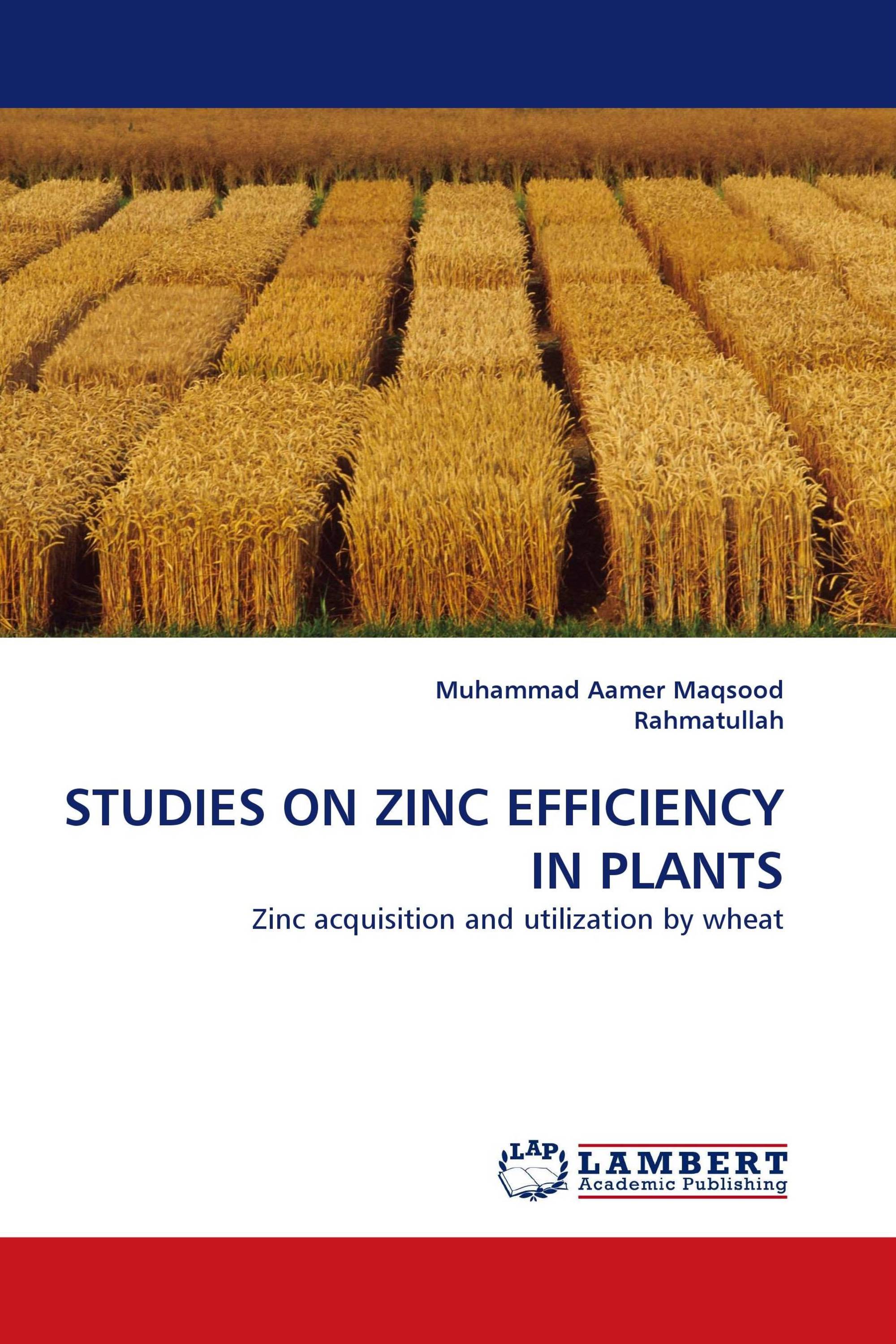STUDIES ON ZINC EFFICIENCY IN PLANTS
Zinc acquisition and utilization by wheat
LAP Lambert Academic Publishing ( 14.09.2010 )
€ 49,00
Zinc (Zn) deficiency is a major micronutrient deficiency around the world especially on alkaline calcareous soils. Application of Zn fertilizers is not always the best solution to cope with this problem in developing countries because of high cost and environmental concerns. An alternate strategy with wider acceptability is improvement of plant nutrient acquisition and utilization potential. In order to make plants efficient in Zn acquisition and utilization through breeding, identification of Zn efficiency mechanisms is a pre-requisite. This book discusses simple methods to study Zn efficiency mechanisms in wheat through solution and soil culture experiments. Wheat genotypes show significant differences in growth and Zn utilization efficiency. Genotypes can be categorized into different groups on the basis of these differences. High biomass production per mg Zn absorbed, variation in Zn translocation within the plant and root organic acid exudation are some of the possible mechanisms for high Zn efficiency in some wheat genotypes. This book is aimed at facilitation of undergraduate and post graduate students to plan, conduct and write basic research trials in plant nutrition.
Kitap detayları: |
|
|
ISBN-13: |
978-3-8383-2930-7 |
|
ISBN-10: |
3838329309 |
|
EAN: |
9783838329307 |
|
Kitabın dili: |
English |
|
Yazar: |
Muhammad Aamer Maqsood |
|
Sayfa sayısı: |
88 |
|
Yayın tarihi: |
14.09.2010 |
|
Kategori: |
Bitkibilim |




